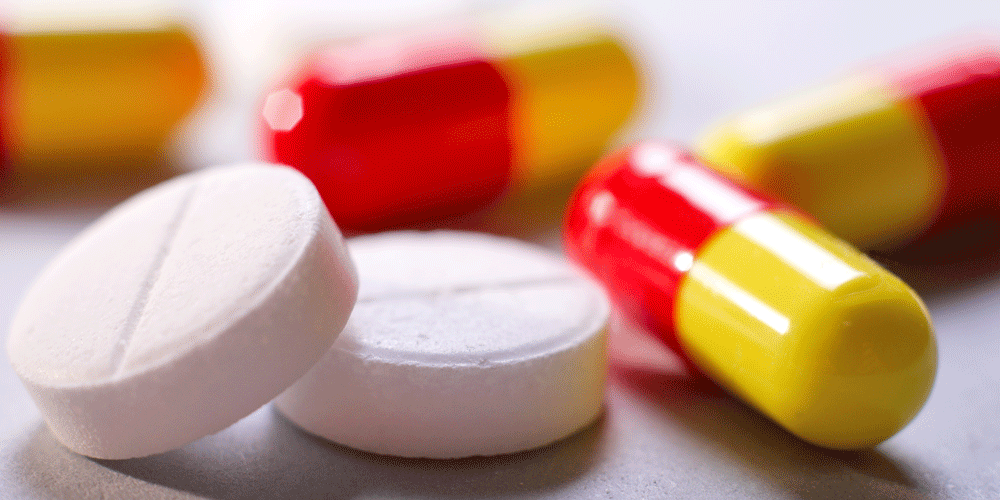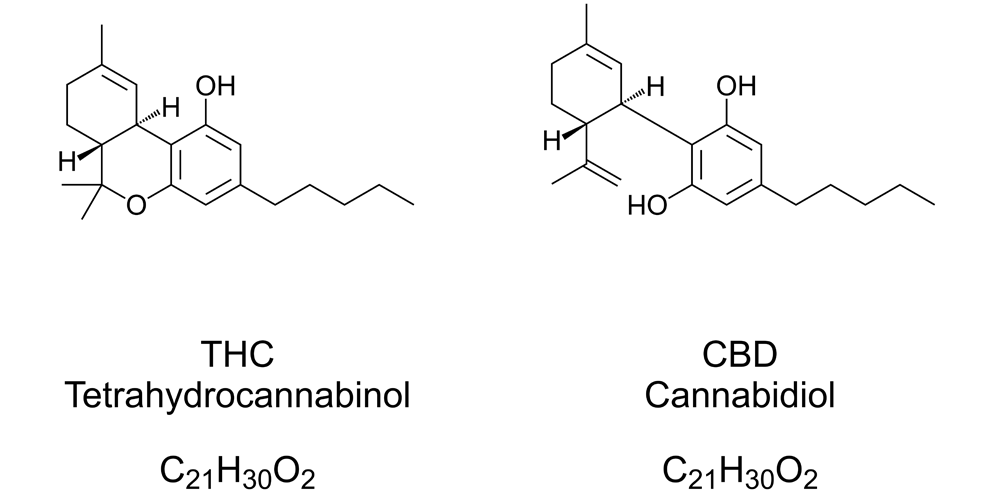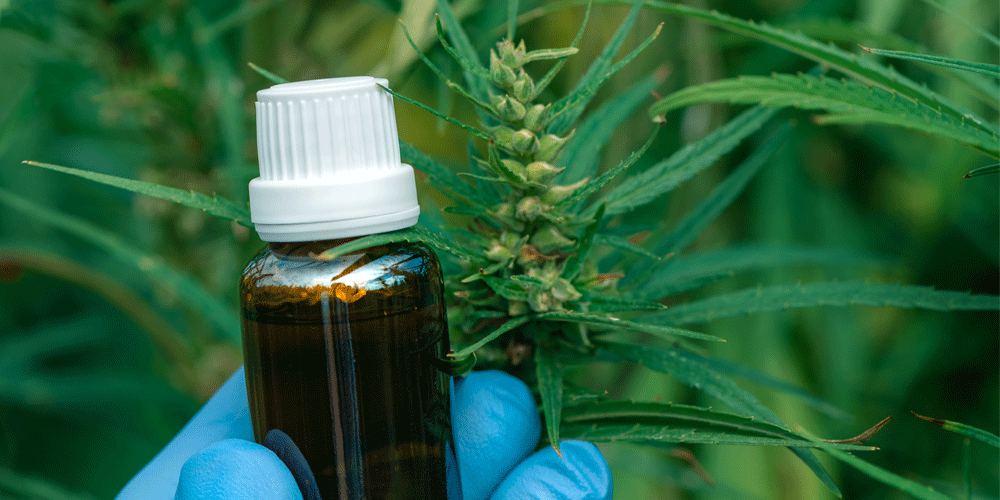Can Truck Drivers Use CBD Oil? [Plus a Guide to Other Banned Substances]
Kelli has been in the trucking industry since 2003. She got her start working in compliance for a trucking carrier that specialized in government freight. She has been the compliance manager with ATS since 2017.
Marijuana. Weed. Pot.
No matter what you call it, can you use it as a truck driver?
Because there’s so much confusion surrounding what substances you can and can’t use, I’m going to get straight to the point on this one: The answer is no, you shouldn’t use CBD (cannabidiol).
But why? There are a lot of misconceptions about whether drivers can use CBD if it has a certain percentage of THC, if you have a prescription for medical marijuana or if marijuana is legal in your state.
With CBD becoming increasingly popular across the states and more states legalizing medical marijuana, it can be confusing to understand what you can and can’t use. Even if it’s prescribed to you, is it okay to use as a truck driver?
One mistake can literally cost you your truck driving career or business. Just one time using one substance you shouldn’t have — maybe without knowing it — can be enough to effectively take away your CDL and make you go through hoops to earn it back.
I’ll answer the questions mentioned above about why you can’t use certain substances, as well as the consequences of using them. I’ll take you through the process of when a drug screen happens, what they’re testing for and so on.
By the time you’re finished reading this article, you’ll understand which substances you can and can’t use so that you can not only make safe decisions for yourself, but also for your CDL.

Prohibited Substances Truck Drivers Cannot Use
Safety-sensitive employees, which include truck drivers, school bus drivers and pilots, are federally regulated by the Department of Transportation (DOT) to undergo regular drug testing. Truck drivers are the largest population among this group.
During a drug test (more on when you may be subjected to one below), your sample is tested for five types of substances:
1. Marijuana
2. Cocaine
3. Amphetamines and methamphetamines (such as MDMA)
4. Opiates (such as heroin and oxycodone)
5. Phencyclidine (PCP)
Statistics show that drug use is on the rise among truck drivers, with marijuana being the primary cause of flunked urine tests.
Marijuana and CBD
It’s fairly self-explanatory why cocaine, amphetamines/methamphetamines, opiates and phencyclidine are prohibited, as they’re illegal on the federal and state level.
Marijuana (medical and recreational) is legal in certain states, so it may be confusing to some drivers about whether or not they can use it. However, as a safety-sensitive employee, no matter what state you live in, marijuana is just as illegal as the other four substances on the list.
Why?
While marijuana might be allowed in certain states, it’s not legal at the federal level. You may live in a state, such as Colorado or Washington, where marijuana is legal. You may even be driving through those states. It still doesn’t mean that you can use the drug.
As a truck driver, you are subjected to federal regulations; it doesn’t matter what individual states have decided about the legality of marijuana — medical or otherwise. Even if you have a medical prescription that allows you to use marijuana, you simply cannot maintain your CDL and use marijuana.
Now, you might be saying to yourself, Okay, Kelli, but what about CBD? That’s okay, right?
There’s some gray area, but ultimately, the answer is no, you shouldn’t use CBD as a safety-sensitive employee. Let me explain.
According to the 2018 Farm Bill (Agricultural Improvement Act of 2018), hemp-derived products containing concentrations of 0.3% or less tetrahydrocannabinol (THC) are not considered controlled substances. CBD would therefore fit into this category. But remember, THC is the primary psychoactive component in marijuana.
CBD contains trace amounts of THC. If the concentration of THC is higher than 0.3%, it’s classified as marijuana. If CBD is hemp-derived and contains under 0.3% of THC, it’s federally legal according to the Farm Bill.
This is where it gets really tricky. Many CBD products may claim that they contain 0.3% or less THC, but most, if any, of these CBD products aren’t federally regulated.

Anyone could purchase a CBD product that they think is safe and legal but because it hasn’t been tested at the federal level, it ends up having a higher concentration than is considered legal. In fact, according to the DOT Office of Drug and Alcohol, the FDA has had to issue warnings to numerous companies because their products contain more THC than is stated on the product label.
Ultimately, when it comes down to it, if you have CBD in your system, it shows up on a drug test looking like marijuana. A driver can swear up and down that they didn’t use marijuana, that they only used CBD oil, and it simply won’t matter. CBD and marijuana look the same on a drug test — there’s no way to differentiate the two.
If the lab results confirm a test is positive for marijuana, you cannot contest it by saying you were using CBD. It’s not considered a legitimate medical explanation.
Because of this, it’s highly recommended that drivers abstain entirely from CBD products — while on the road or otherwise. While we understand that CBD can provide individuals some relief from medical conditions, drivers must ultimately follow federal regulations. There’s no way to be certain about how much CBD is in the products on store shelves.
A Note on Alcohol Consumption
It’s also important to note that drivers cannot be under the influence of alcohol while driving. Even though alcohol is legal on a federal level, drivers cannot consume alcohol while driving or consume alcohol and then drive.
In fact, many carriers have a no-tolerance policy. If any amount of alcohol is detected in a driver’s system or they have any alcohol in their truck, they’ll be terminated immediately.
Some companies require drivers to abstain from alcohol on the road entirely and to only use it during their time at home. That way, if a driver needs to move their truck during an emergency in the middle of the night, for example, they’re not under the influence and will safely be able to move it.
How Drug and Alcohol Screenings Work
As a truck driver, you’ll undergo countless drug and alcohol screenings. You can be subjected to pre-employment screenings, random screenings, reasonable suspicion screenings, return to duty screenings and post-accident testing.
While you know when a pre-employment screening or a return to duty screening is going to happen, the other screenings are random. The DOT requires companies to test 50 percent of drivers for drugs annually and 10 percent of drivers for alcohol annually.
Keep in mind, even if you’re off duty, you can be called in for a random drug test (because drugs are illegal on the federal level). You could be staying in a hotel for your 10-hour rest break or relaxing at home during home time and still be called in to do a random drug test.
The same can’t be said for alcohol. You can’t be called for a random alcohol screening when you’re off duty. You have to be on duty to be called.
When you’re called for a random screening, you have to go to a testing facility immediately. A third party administers the test and releases your results to a medical release officer (MRO). If you test positive for one of the five drug categories, you’ll be notified by the MRO.
Visit this article for a more in-depth look at the drug testing process.
How Long Do Drugs and Alcohol Stay in Your System?
Banned substances can stay in your system long after your last use. If you’re a chronic user of marijuana, for instance, a urine test may detect it upwards of 30 days after your last use.
Other banned substances, like cocaine, may stay in your system for a few days up to a few weeks. Alcohol, on the other hand, usually takes about a day to leave your system.
While many companies haven’t implemented hair follicle testing yet, drugs may be detected in hair follicle testing months after the last drug usage. Drivers should consider this before they decide to partake in drug use.

What Happens If You Fail a Drug Test?
If you fail a drug or alcohol test, you’re immediately removed from your truck once your results are posted. At that point, your CDL is no longer valid.
You don’t have the opportunity to take your truck home and unpack your stuff. You have to take your belongings and get yourself home.
You will have a chance to speak with your MRO about the results and contest them. They have a set amount of time to get in touch with you and must make an earnest effort to reach you (at minimum three times within a 24-hour window).
Once they make contact, you have 72 hours to get back to them to contest your results or they’ll be reported as-is. When you contest the results, you may request to have your specimen tested again. When they do your random test, they do a split specimen test. One sample is tested and the other is saved. If you request a second test, they’ll send your unused sample to a different lab for testing.
You can also contest your results if you think your prescription medication caused the failed test (more on that later).
If you fail a drug or alcohol screening, you’re unable to perform DOT-safety sensitive duties. If you want to perform these duties again, you have to go through a substance abuse professional (SAP) program. You can’t re-enter the truck driving workforce until you work your program and receive approval from your SAP.
If you want to learn more, check out our article on the SAP program.
Keep in mind, even if you go through the SAP program and are approved to drive again, many companies will not work with you. Their guidelines state that they cannot hire any driver who has ever failed a drug or alcohol screening.
Contesting a Failed Drug Test: Can My Prescription Cause a False Test?
In some cases, you may fail a drug test due to a certain medication you may be on. When your MRO calls you and explains that you’ve failed a drug test, they’ll ask you if it could’ve been caused by prescription medication.
If you feel that your prescription medication may be what’s causing you to fail the test, you must provide your prescription information to the MRO. It has to be a valid and current prescription. We recommend that you have a photo of the prescription and the bottle. Know where you got it filled and by what doctor.
Once the MRO receives a copy of your prescription, they’ll match it with what you tested positive for. If it matches, it won’t count as a failed drug test and you won’t need to go through the SAP program.
If you’re concerned about a prescription you’re already taking or that a doctor has recently prescribed to you, don’t hesitate to talk to a DOT physician or reach out to your compliance or safety team. Some medications recommend that you don’t operate heavy machinery at all, so you may not be able to take it and still drive.
While your family doctor might not know if you can take a certain medication and still drive, the safety team or a DOT physician will be able to recommend what you can and cannot take.
It’s also best to see a DOT physician if you’re prescribed any new medications by your family doctor. If it’s a prescription you’ll be taking regularly, it should be documented on your medical card.
Failing a Drug Test: Understanding the SAP Program
Drug use — primarily marijuana and CBD use — is something you should take seriously as a truck driver. Long-time truck drivers are being forced to leave the industry because they believed they could take a CBD product but it resulted in a failed drug test.
With numbers on the rise, make sure you’re also sharing this information with fellow drivers. There’s a 25 percent increase in failed drug tests this year compared to last year. Marijuana is the number one substance detected and the second result (cocaine) is significantly lower.
As a safety-sensitive employee, you’re regulated on the federal level. Because marijuana is still illegal on the federal level, that means it’s illegal for truck drivers to use it. In that same breath, hemp-derived CBD is legal, but there is no way to be sure that CBD products at your local store contain legal amounts of THC, which means it’s not safe for you to use.
We understand that mistakes happen. If you want to know what to do if you fail a drug test and which companies you can work for following completion of the SAP program, we have an article that explains failed drug test next steps.
![Can Truck Drivers Use CBD Oil? [Plus a Guide to Other Banned Substances]](https://blog.drive4ats.com/hubfs/Images/Blog/CBD/CBDYesOrNoFeatured.png)
